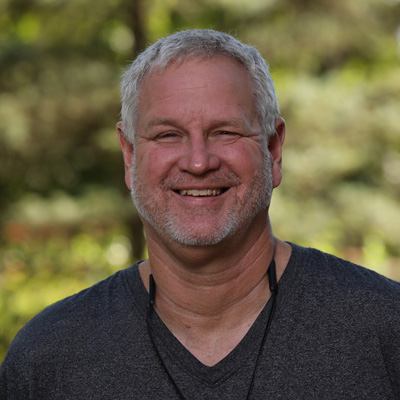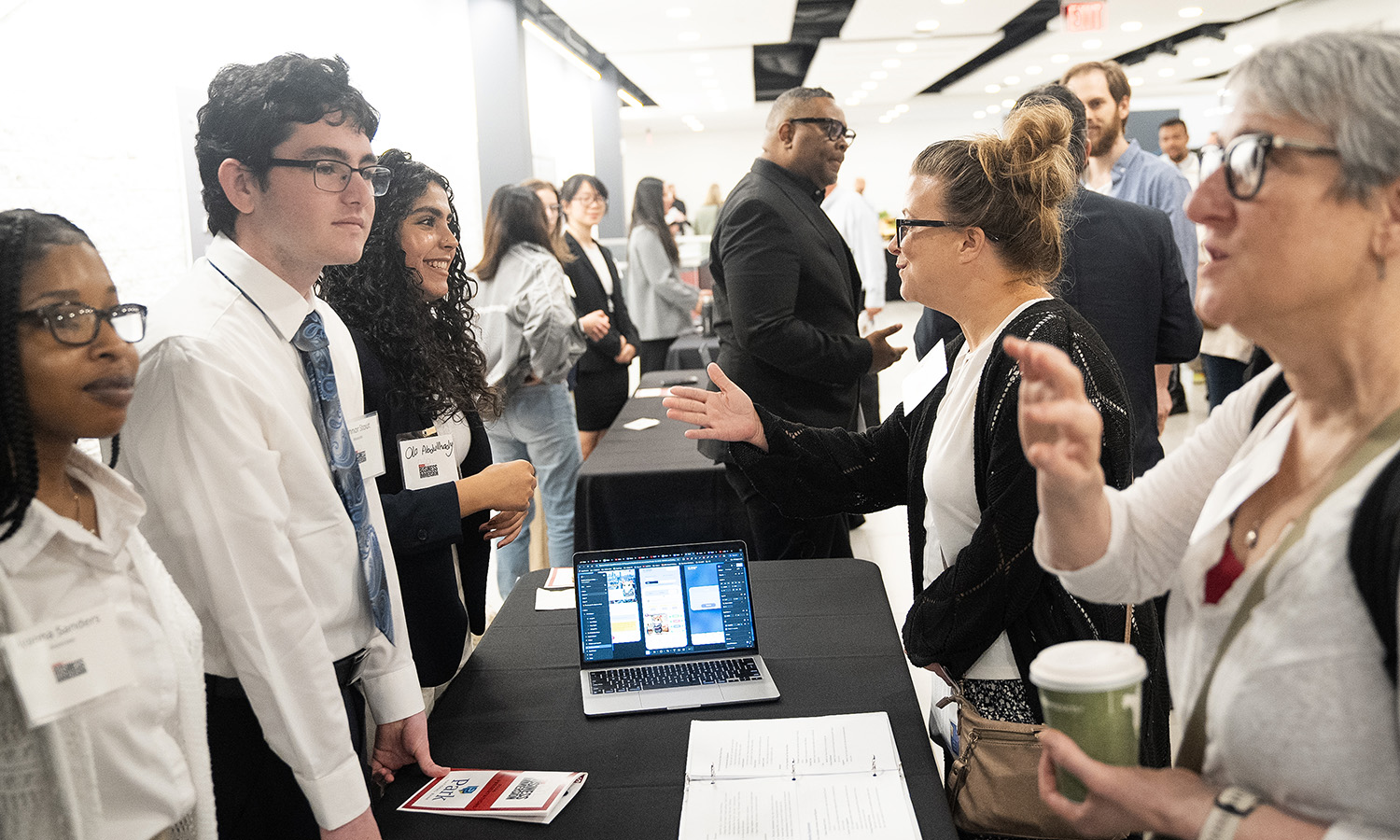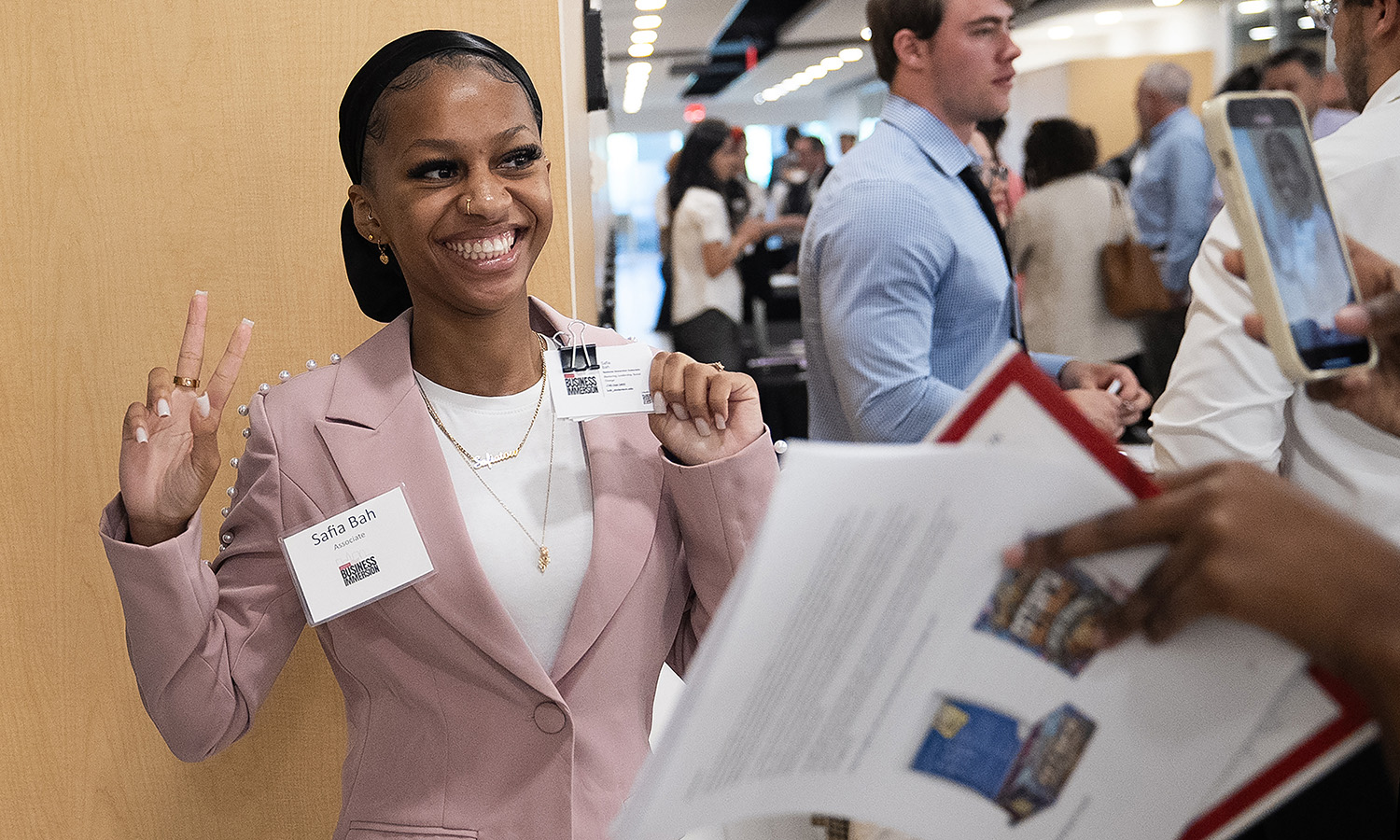Juan Chaides Hurtado ’27 wanted to sharpen his business acumen without taking time away from his studies during the school year.
Jigisha Pawa ’26, the daughter of two entrepreneurs, already had a solid business base and wanted to expand it.
Both found what they were looking for in a business immersion program at Denison Edge, an extension of the university’s Knowlton Center for Career Exploration located in downtown Columbus.
This summer, 22 students spent six weeks learning about the world of financial literacy and wellness. They were tasked with developing innovative ideas and building products for their client, Park National Bank.
The students, known as “associates” for the duration of the program, were housed at the Columbus College of Arts and Design and assigned mentors from the business community. They received steady feedback from the program coordinator, mentors, business leaders, and focus groups.
It was challenging work that allowed students to take their liberal arts education and apply it to a complex issue in a supportive environment.
“I was intrigued,” said Hurtado, a data analytics major with a concentration in psychology. “This program let me test the waters. If I ever want a career pivot, I now have some of the business skills necessary to go about it.”
Pawa, who hopes to empower young women through financial education and management tools, is building an app to achieve those objectives. She found the mentorship and networking provided by the program invaluable.
“It allowed me to channel my ideas and curiosity in a structured and professional way,” said Pawa, an economics major with a concentration in finance. “It’s exactly why I wanted to join it in the first place.”
“Getting outside of your comfort zone is where you really learn to grow,” says Ola Abdullhady ’26 (center).
Understanding, pitching, and presenting
Program leader Mike Compton, a management consultant and entrepreneur who’s launched four startups, knew this project would be particularly demanding given the assignment. He spent the first week of the program teaching students about the vague term “financial wellness.”
“We studied how people around the world measure financial wellness,” Compton said. “It’s a very complex challenge because financial wellness means different things in different cultures.”
It’s not unlike taking a six-week crash course in a foreign language. Students had to learn to speak in financial terms that made sense to the mentors and business leaders who helped them develop their ideas.
“Sometimes, mentors will say, ‘You are doing all the right things and have the right ideas, but this is the way you want to present it and phrase it,’” said Preston Aikman ’26, a global commerce major.
Among the most important facets of the program was learning how to pitch ideas and deliver final presentations, which they did onstage at Denison’s Michael D. Eisner Center for the Performing Arts.
“Even in the business world, a lot of people don’t have that skill set,” said Kevin Mongold, an innovation leader for Park National Bank. “The fact Denison Edge is offering to help students build this skill will put them leaps and bounds above some of their colleagues as they enter the business world.”
Among the most important facets of the program was learning how to pitch ideas and deliver final presentations, which students did onstage at the Eisner Center.
Growing beyond the comfort zone
Compton not only encouraged collaborative projects but also recommended that students team up with partners from different academic backgrounds. Ola Abdullhady ’26 — never keen on group work until this experience forced her to adapt — developed an educational app called MoneyMates with her team, which teaches financial literacy and wellness in an interactive, risk-free environment.
“Over these six weeks, I’ve learned a lot, including how to be more adaptable in group settings,” said Abdullhady, who worked with Hurtado. “Getting outside of your comfort zone is where you really learn to grow.”
Mongold, who made multiple trips to Denison Edge to gauge progress, said all the pitches were realistic. He likes the MoneyMates concept so much that he hopes the group will keep honing the idea. He was also impressed by Get Rich or Die Trying, an educational money management board game developed by a group including Akindele Aboyade-Cole ’26.
Aboyade-Cole, a psychology and neuroscience double major, said his group went through numerous versions of the game after meeting with mentors and financial experts, who recommended changes and tweaks. Some associates continued working on their projects long after the six-week program ended.
“It’s a little frustrating at times, but it teaches you patience and resilience,” he said. “That’s how life is. You learn to adapt and find solutions. This experience broadened my horizons.”









